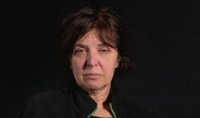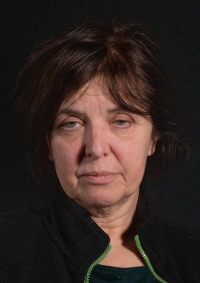We were united by our attitude towards the regime, our desire for freedom and the constant danger
Anna Hradilková was born on January 12, 1956 in Prague as the eldest child of Zdenka and Přemysl Mucha. She is coming from a Catholic family. Her parents at home often brought together people with Christian background, including former political prisoners, for debates and domestic masses. At school, she always felt excluded because of her faith and the environment in which she grew up. She knew she couldn’t talk openly about many things away from home. She was associating with dissent, in the circle of the Němec family and The Plastic People of the Universe and others. As they did not sign Charter 77 because of their husband’s university studies, they were not so much under the scrutiny of the State Security. At times, they hid friends who were threatened with imprisonment for political reasons, or were pressured to samizdat. During her adolescence, she became interested in the environment, which later led her to co-found the Prague Mother’s Association. Despite fears of violence by the State Security, she refused to emigrate.

